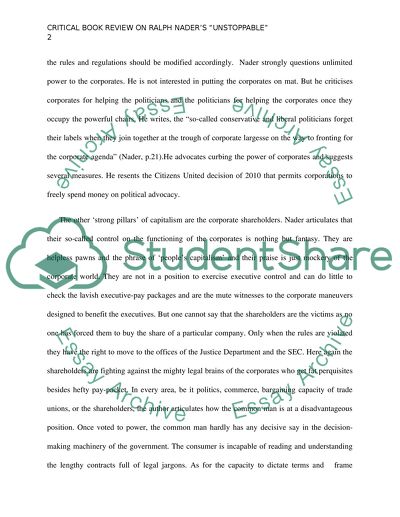Cite this document
(“Critical Review on Ralph Naders Book Unstoppable Report/”, n.d.)
Retrieved from https://studentshare.org/literature/1662450-critical-review-on-ralph-naders-book-unstoppable
Retrieved from https://studentshare.org/literature/1662450-critical-review-on-ralph-naders-book-unstoppable
(Critical Review on Ralph Naders Book Unstoppable Report/)
https://studentshare.org/literature/1662450-critical-review-on-ralph-naders-book-unstoppable.
https://studentshare.org/literature/1662450-critical-review-on-ralph-naders-book-unstoppable.
“Critical Review on Ralph Naders Book Unstoppable Report/”, n.d. https://studentshare.org/literature/1662450-critical-review-on-ralph-naders-book-unstoppable.


